Writers - I want to be that guy for you, the one who throws himself onto the barbed wire so you may get on.
I hope this doesn't happen literally, of course, but I do want to help you go from Point A with your writing (wherever you are starting) to Point B (wherever you want to go with your writing, OTHER than having the sole goal of being on the Oprah Show.) And no, I'm not selling you anything. I swear, nothing at all, no hidden agenda - there's too much of that bullshit in the world already, I just honestly want to help you.
Why the hell do I want to do that? Good question.
When I was coming up as a writer and didn't know my ass from my elbow (and I'm not so far removed from that) it all seemed so overwhelming. On a strict education budget (of 0$) I Googled every single article and blog I could find about writing. There was some great info, but most of them were selling some form of book coaching or marketing plan. I get it, we have to eat. But when I tried to reach out to other authors, I was met with so much pretension and snobbery it sickened me.
I mean, it's just ART, right? Creation. No matter how inexperienced or technically unaccomplished you are, or God forbid if you choose to self publish, if you have something to SAY, a human story to tell that SOMEONE will enjoy, then fuck all the ivory-tower attitude bullshit.
Luckily, I had an amazing amount of help from the self-publishing firm I went through (I'm not even going to mention their name so you don't think I'm selling something, but hit me up if you want a recommendation.) I won some and lost some, actually I lost a lot more than a won by about a 1,000 to 1 margin, but stumbled forward to a very humble modicum of acceptance for my work, and also a budding career as a pro blogger.
I now get emails and Facebook messages from people all the time saying they are considering writing a book, too. Go for it, I say. I support you 100%, and I'll even tell you everything I've learned (for free) so you may have a smoother learning curve than I did. I will, essentially, throw myself onto the barbed wire for you, so that you may get on with it.
One caveat - if you want to be a writer or write a book, you have to write. Not just talk about it, but do it. Every day. If you want to be a planner, not a writer, then I can't help you.
So I've put together a small catalog of the blogs I've documented about writing. Granted, I'm not the best writer you'll ever meet, and surely there are much smarter and more accomplished teachers out there, but you won't find someone who cares about OUR art form and encourages you to write your heart out more than me. So dig in, and enjoy.
Norm :-)

Writing and publishing a book can be overwhelming enough, but when you're done and feel like sitting back and relaxing, it dawns on you that someone has to market the damn thing - and that unlucky someone is you!
But with the proper know-how, some focused time, and a lot of hard work you can set up a solid marketing campaign and sell a bazillion copies. The good news is that it doesn't have to cost you much, or anything at all.

I'm more excited to write this morning than usual because I just received my first one-star review for South of Normal. Yes, I do mean I'm excited in a good way, and no, "one-star," is not a typo. Let me explain why, and offer how one-star reviews are actually nothing to stress about as an author.
I checked into my Amazon.com page this morning and saw a new review had been posted. That’s usually a good thing, but this reader gave the book one star.
The review was titled "horrible on EVERY level..."

Of all the elements of a good story, none are as important as your characters. They are so essential to your story taking life that every single sentence in your story needs to do one of two things:
1) Advance the action, or
2) Develop the characters.
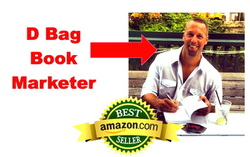
First off, let me correct that title. It should read: Confessions of an Amazon.com Best-Selling d-bag book marketer. That’s because, as of 8:14 am EST on April 26, 2013 AD, the year of our Lord, I joined the ranks of Amazon’s best selling authors.
I know what you’re thinking: “Who gives a flying shiznitt?” And I totally agree, but please grant me two seconds anyway, so I might be able to provide you insight into the highly suspect nature of best seller lists.

Writing a memoir can be a fun, exciting endeavor, and cathartic for the author to get their version of real life onto the page. It also has the capacity to piss off a lot of people.
I ran into a few complex ethical questions while writing my second book, South of Normal…

I am a firm believer that you write a book, but you rewrite your way to a good book. Ernest Hemingway rewrote the last page ofFarewell to Arms 39 times. When asked by a reporter what technical issue he was struggling with, he replied “Getting the words right.” Well said, Big Papa.
Personally, filling up the pages is not a problem - I can bang out about 5,000 words a day…but the problem is that only a few of those lines are actually readable! So to craft my writing into clear, effective communication geared toward other human beings it takes me a tremendous amount of proofreading and editing.

As a writer, it’s healthy to lose that image of yourself as a special prodigy who can summon other-worldly prose from the ether. Instead, think of yourself a blacksmith. You grab those words hot out of the fire and pin them to your work station, hammering mercilessly with all of the sweat and muscle you can muster, so you might just forge them into something useful.

One of my biggest thrills is getting an email from an aspiring writer, who asks for advice on how to start their first book. Some of them are bright eyed and optimistic, some seasoned and cautious, but whether they’re penning a business book or the next great teen-zombie-thriller, there’s one question they all have in common:
Where the hell do I begin? Great question!

All stories follow a three-part structure: the beginning, middle, and the end. That may seem simple, but they each part requires different elements of the story at different times in order for it to work right. When this is done well in a book or a movie you, the audience, don’t even notice. But when something is out of place, it just feels wrong, and the whole story is uncomfortable or even objectionable.
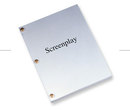
Have you written a book and you want to adapt it to a screenplay? There are a lot of commonalities to telling a good story, but other than that it's a completely different animal. Let me walk you through some movie-making basics that aren't too technical.

Yesterday I was the lucky recipient of a comment on one of my blog posts, expressing mild displeasure with my new book, South of Normal. And displeasure with my existence here on earth. And any chance I might have of chillaxing in heaven one day.
Granted, the comment was eloquent, passionate, and succinct, a good piece of writing in its own right. It said:
"FUCK YOU AND YOUR FUCKING BOOK. BURN IN HELL YOU SONOFABITCH"
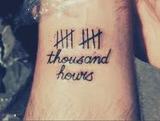
Talent is a myth. I know, we all lionize the story of someone who comes out of nowhere and is “discovered” on natural ability alone. That’s the plotline our media keeps feeding us, whether its on shows like American Idol, our cesspool of unreal reality shows, and even in old movies like the Natural. But, more often than not, those overnight successes were years in the making. So if it’s not God-given talent, what is the secret to success? Hard work.

A few years ago, when I started down this path, I wanted to be a WRITER. It all seemed glamorous – living in the tropics and banging out a best selling novel in between rum drinking contests, bull fights, and answering fan mail from exotic female admirers.
Unfortunately, that’s not how it works. Not even a little bit.
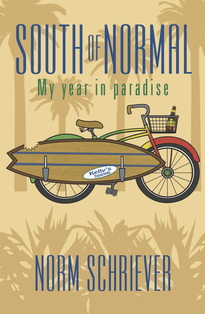
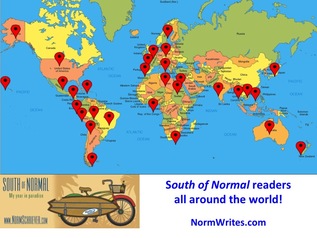
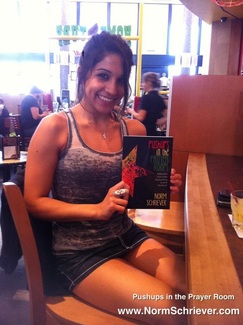
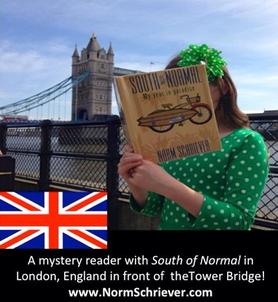
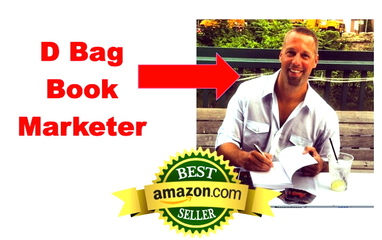
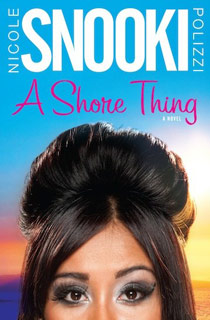
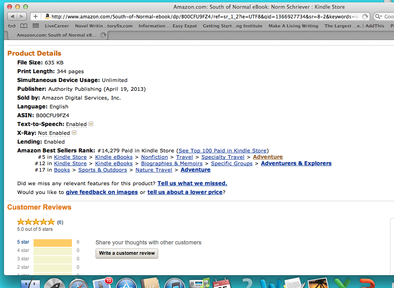
 RSS Feed
RSS Feed